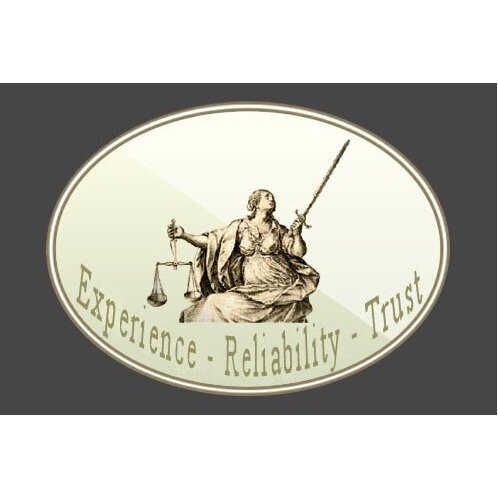Best Mortgage Lawyers in Pattaya
Share your needs with us, get contacted by law firms.
Free. Takes 2 min.
Free Guide to Hiring a Real Estate Lawyer
List of the best lawyers in Pattaya, Thailand
About Mortgage Law in Pattaya, Thailand
Mortgage law in Pattaya, Thailand, falls under the broader spectrum of property law. A mortgage is essentially a loan in which property or real estate is used as collateral. The borrower enters into an agreement with a lender (typically a bank) wherein the latter provides loan funds in exchange for taking an interest in the borrower's property. This is a common practice in Pattaya, a popular location for both expatriates and locals due to its vibrant real estate market. Understanding mortgage law is crucial for anyone looking to purchase property or use it as collateral in Pattaya, as it ensures compliance with local regulations and protections under Thai law.
Why You May Need a Lawyer
There are several situations when you may need legal assistance with mortgage matters in Pattaya, such as:
- Translating and reviewing mortgage agreements to ensure they comply with Thai law and are favorable to you.
- Navigating issues related to foreign ownership and eligibility since Thai law places certain restrictions on real estate ownership by foreigners.
- Resolving disputes with lenders, such as foreclosure proceedings or breaches of contract.
- Understanding tax implications related to owning mortgaged property.
- Dealing with cases of fraud or misrepresentation by developers or real estate agents.
Local Laws Overview
Some key aspects of local laws concerning mortgages in Pattaya include:
- The Thailand Civil and Commercial Code governs the mortgage process, detailing the rights and obligations of both lenders and borrowers.
- Foreigners may find it challenging to secure mortgages due to restrictions on land ownership, typically requiring partnerships with Thai nationals or establishing a legal entity such as a limited company.
- The Condominium Act allows foreigners to hold up to 49% of the unit area in any condominium; hence, mortgages for these properties are more common.
- Mortgage registration involves filing necessary documents with the Land Department, ensuring the mortgage is legally recognized.
- There are specific provisions about interest rates and penalties for default, which must comply with local financial regulations.
Frequently Asked Questions
What is the process of obtaining a mortgage in Pattaya?
The process typically involves selecting a property, approaching a lender, undergoing a credit assessment, submitting required documentation, and then finalizing the loan agreement which must be registered with the Land Department.
Can foreigners get a mortgage in Pattaya?
Foreigners can get a mortgage, but it often requires proof of substantial financial stability and possibly a partnership with a Thai national or company due to restrictions on land ownership.
What documents are required for a mortgage application?
Commonly required documents include your passport, proof of income, bank statements, tax records, and the purchase contract for the property.
What interest rates can I expect for a mortgage in Pattaya?
Interest rates vary and depend on the bank and your financial profile. Generally, they range from 5% to 8%, but it's best to consult multiple lenders.
How long does mortgage approval take?
The mortgage approval process can take anywhere from a few weeks to a couple of months, depending on the lender's requirements and your preparedness.
What happens if I default on my mortgage?
If you default on your mortgage, the lender has the right to initiate foreclosure proceedings and may sell the property to recover the owed amount.
Are there any restrictions on the types of property that can be mortgaged?
Yes, foreign individuals face restrictions on owning land but can obtain mortgages for condominium units or as part of a Thai legal entity.
Can I refinance my existing mortgage in Pattaya?
Yes, refinancing is possible, allowing you to potentially secure better terms or lower interest rates with either your existing or a new lender.
Do I need a local bank account to obtain a mortgage?
Having a local Thai bank account is typically necessary as it facilitates the mortgage transaction processes and reflects your financial dealings in Thailand.
Who can assist with issues during the mortgage process?
A qualified lawyer with experience in Thai property law can provide invaluable assistance throughout the mortgage process, including review of legal documents and resolution of disputes.
Additional Resources
For those seeking additional resources on mortgage matters in Pattaya, consider the following:
- Thailand Real Estate Association - offers guidance and support for real estate transactions.
- Bank of Thailand - provides information on financial regulations and guidelines.
- Pattaya Land Department - assists with property registration and legal documentation.
- Consumer Protection Board (OCPB) - addresses consumer rights issues, including complaints related to mortgages and real estate.
Next Steps
To proceed with obtaining a mortgage or seek legal assistance in Pattaya, consider these steps:
- Review your financial status and gather necessary documentation.
- Identify potential properties and understand ownership laws.
- Consult with a mortgage broker or legal expert familiar with Pattaya property law.
- Explore various lenders to compare mortgage terms and interest rates.
- Engage a real estate lawyer for legal advice and document review.
- Once all agreements are understood and accepted, proceed with the formalities of the mortgage registration.
Lawzana helps you find the best lawyers and law firms in Pattaya through a curated and pre-screened list of qualified legal professionals. Our platform offers rankings and detailed profiles of attorneys and law firms, allowing you to compare based on practice areas, including Mortgage, experience, and client feedback.
Each profile includes a description of the firm's areas of practice, client reviews, team members and partners, year of establishment, spoken languages, office locations, contact information, social media presence, and any published articles or resources. Most firms on our platform speak English and are experienced in both local and international legal matters.
Get a quote from top-rated law firms in Pattaya, Thailand — quickly, securely, and without unnecessary hassle.
Disclaimer:
The information provided on this page is for general informational purposes only and does not constitute legal advice. While we strive to ensure the accuracy and relevance of the content, legal information may change over time, and interpretations of the law can vary. You should always consult with a qualified legal professional for advice specific to your situation.
We disclaim all liability for actions taken or not taken based on the content of this page. If you believe any information is incorrect or outdated, please contact us, and we will review and update it where appropriate.














